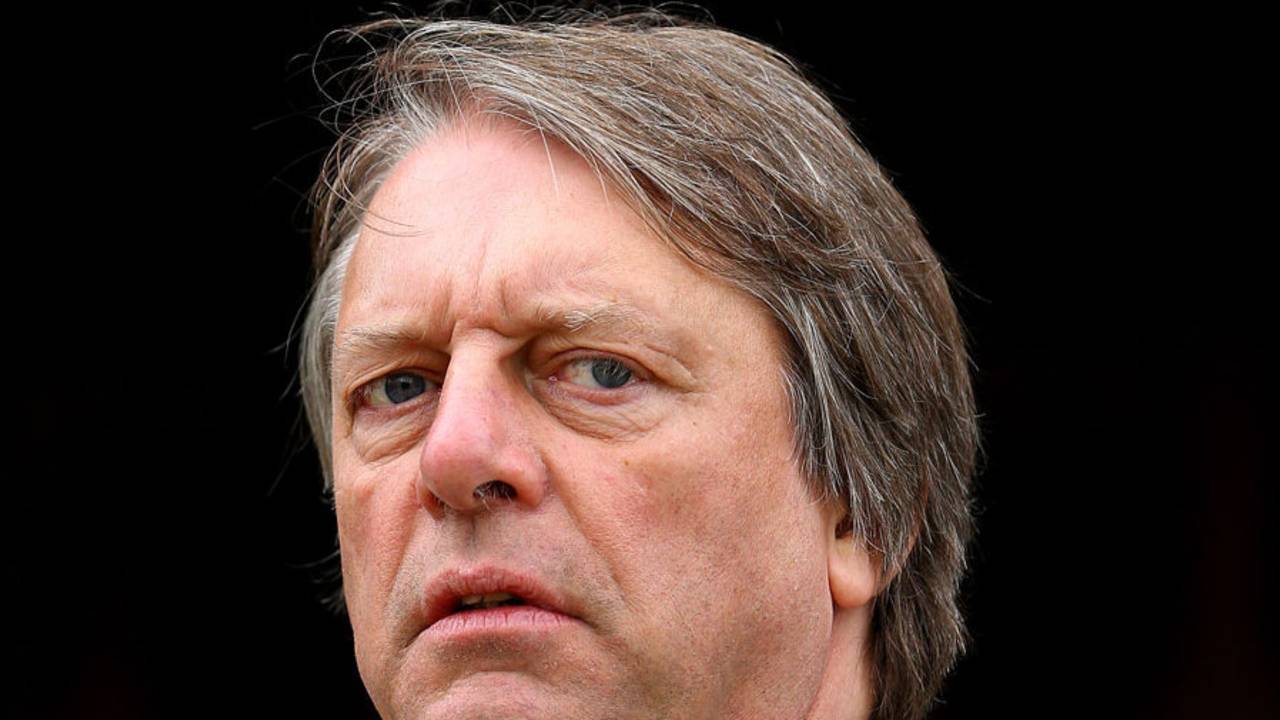ECB appeals Nobel Peace Prize decision
England board outraged at its peace-keeping efforts being overlooked
James Marsh
Oct 13, 2014, 7:34 AM
Giles Clarke reacts after hearing the news that Hollywood rejected his script titled: "Chief executives in conference rooms drinking coffee and eating cakes" • Getty Images
Somewhere in Oslo this week
Morten (Nobel Peace Prize big cheese): So, Mr Clarke. I understand you're not happy with our selection for the prize this year?
Giles Clarke: Well, that's putting it mildly. I think it's the worst decision since Kevin Pietersen bought a typewriter.
Morten: I see. Well, I think in our defence the choice of Malala and Kailash Satyarthi has been universally well received. Who do you think should have got it?
Clarke: The ECB.
Morten: I'm sorry. The who?
Clarke: The ECB. The England and Wales Cricket Board. We loathe conflict.
Morten: Um, right. I'm not quite sure I follow you, but we are in the business of being diplomatic so perhaps you'd like to tell me exactly why the ECB should have won the prize.
Clarke: Can you think of another group of people who have done more to promote peace and harmony in the last year?
Morten: Er, maybe one or two. I'm not such a big cricket fan, I must admit, but I was under the impression your organisation was widely regarded as having overseen one of the most comically divisive periods in English cricket ever. A low ebb, some said.
Clarke: Oh dear. I can see you're the wrong type of Nobel Peace Prize judge. Contrary to your claim, we've actually worked tirelessly to bring about the end of a conflict between two of the fiercest enemies in the world today.
Morten: Um, you mean India and Pakistan?
Clarke: No. Alastair Cook and Piers Morgan.
Morten: Oh right. And you feel you've been successful in this?
Clarke: Undoubtedly. There may have been one or two casualties along the way, such as the career of our best player and the dignity and reputation of English cricket, but apart from that very much so. Why couldn't you just pick one winner, by the way?
Morten: Well, Mr Clarke. The whole point of the prize is to highlight the efforts for peace and reconciliation by those who receive it. This year we decided that giving it to one person from each of the two nations with such a troubled history would be an important symbolic gesture.
Clarke: Whatever. I personally would have just gone with the Indian guy.
Morten: Yes, I've heard that's your usual strategy. Anyway, so go on then. Can you give me one concrete example of how this ECB you talk of has brought about peace in recent memory?
Clarke: We insisted Joe Root stop wearing fake beards.
Morten: Again, you may have lost me a little bit there. Anything else?
Clarke: Well, we tried to stop Mr Pietersen feeling upset when he thought a parody Twitter account about him was being run by some of his team-mates.
Morten: And how did you do that?
Clarke: We told him it wasn't being run by his team-mates. After a very thorough investigation, I might add.
Morten: And what did that involve?
Clarke: We asked Broady, Swanny and Brezzy if they were running it and when they said "No", Paul Downton and I checked really closely to see if any of them had their fingers crossed behind their backs. Not one of them did.
Morten: Right, well yes, I can certainly see you put in a lot of effort there on the peace-keeping front, but we're probably just going to stick with our original decision, to be honest. Have you anything else to add?
Clarke: The Nobel Peace Prize is the biggest threat facing peace prizes today.
Morten: Thank you for coming in, Mr Clarke.
James Marsh writes Pavilion Opinions. He is also a Tefl teacher whose students learn superlatives by being shown Graham Thorpe videos
